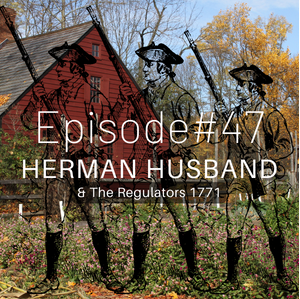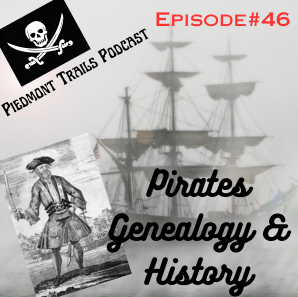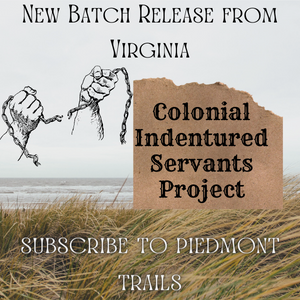All through the years of researching many words and sayings that were unfamiliar to me would make their presence known. The atmosphere and social climate of years past are very much different from today’s standpoint. The meanings of these words and phrases are not quite as simple as we may think. The language of our ancestors during the colonial period can be rather difficult for our society to fully grasp and completely understand. This fascinating world of language speaks volumes between division lines and union lines within our ancestor’s lives. During the colonial period, when many families were immigrating to the colonies, language barriers were prevalent. These barriers created huge misunderstandings which in many cases led to even more problems. This article will give you examples of phrases from the colonial period. Primary focus will be on the years prior to the American Revolutionary War.

One of the best sources for vocabulary within a colonial community are church records. These materials will guide you to the local communication lines and give you insight on how families talked to one another. Diaries and journals are greatly prized, but finding one of these about your personal ancestor is very difficult. Another source for words during a particular time period can be a local newspaper as well as a will/probate. At times, both of these documents can reveal clues and hints to specific phrases and sayings.
Due to the overwhelming languages filled with customs and traditions, only a small portion of colonial period phrases are included with today’s article. I hope you find a phrase that is familiar to you. If not, I hope you will look into the language of the colonial period with a desire to learn more about the vocabulary used. After all, these are the words of our ancestors.
- Baker’s dozen-13 instead of 12
- Beeline-straight narrow line
- Beyond the pale-reference to a person without common sense
- Bite the bullet-chewing or grinding a bullet with teeth, used to sustain the pain
- Bitter end-the end of the rope where it attaches to the anchor
- Break our fast-let’s take the day’s first meal-later meaning breakfast
- Capias-legal document ordering the arrest of a particular person
- Chuffy-to be impolite or rude
- Crack a smile-if wax was applied heavily to the face, when smiling a crack could occur especially during winter months
- Cut and run-Sailors term for cutting the rope and riding the winds
- Flash in the pan-misfire of a musket
- Forced eggs-scrambled eggs
- Get it straight from the horse’s mouth-viewing the mouth of a horse to determine the age prior to purchase or trade
- Get off your high horse-stop acting superior
- Hogshead-wooden barrel measuring 48 inches in length and 30 inches in width at the opening.
- Humble Pie-it was pronounced first as “umble” without the h. It means the intestines of a fresh killed animal. This was a normal dish prepared for the indentured servants and slaves
- In a pickle-a difficult situation, hard to escape
- Kedge-to be in good health, good spirits
- Fishy-to be in a drunk state, overcome with alcohol
- Macaroni-a man’s fashionable garment
- Ordinary-another term for a tavern
- Potluck-a surprise meal filled with a pot of unknown food
- Powder Room- room for powdering wigs
- Quarter-1000 acres of farming land away from primary residence
- Shalloon-tightly woven wool for lining clothing
- Shaver-young man beginning to shave facial hair
- Si-gogglin-pertaining to a wooden structure with it’s dimensions not completely straight
- Sleep tight-wishing the ropes would remain tight on the bed for a good night’s rest
- Spinster-unmarried woman
- Start from scratch-a line drawn in the dirt to signify the starting line for a horse race
- Thatched roof-made of straw or grass material
- What the dickens?-what the devil?
- Worth an arm and a leg-colonial painters would charge more if they had to include arms and legs
- Xst-meaning Christ as in Jesus
- Xtian-Christian as in Xtian Williams

Enjoy Your Journey To The Past
Share in your comments phrases and sayings that have been passed down to you from generations before. These words from your ancestors can reveal many clues and hints about their origins prior to arriving to the colonies. Wishing you all well with your genealogy journey !!
Categories: Genealogy #OffTheGrid, North Carolina











“Beyond the pail”: “Pail” should be spelled “pale.” A pale was a fencepost–so, beyond the pale means on the far side of the fence. A pail, as still used occasionally today, is a bucket.
LikeLiked by 1 person
Wow !! You’re right, I misspelled that completely !! Thanks so much Noel for pointing that out to me. It is corrected now. It’s amazing what other phrases came to mind after I published the article today. I may have to quickly add them in a short attachment. Thanks Again !!
LikeLike
A quote from my grandfather Clarence Peterson. “ in the early years of the 20th century, when I was growing up in Martins Ferry Ohio, on the Ohio River near Wheeling WV, we often said “crick” for “creek”, Curtains for blinds. As late as the 1920’s the Wheeling corrugating company was making frying pans we called “spiders”.
Year 1988 written as a side bar in The Book of English
LikeLiked by 1 person